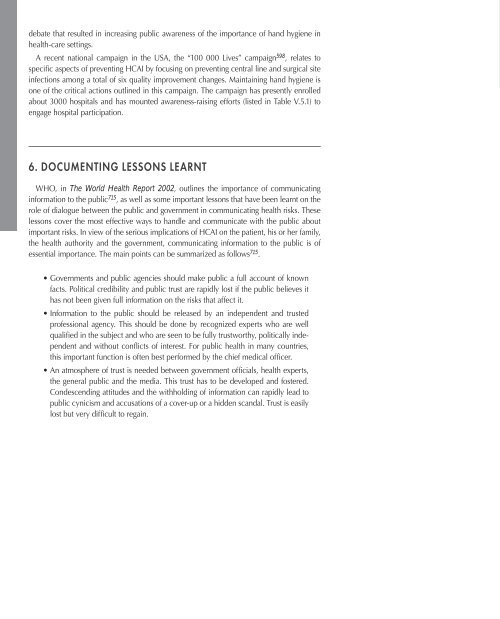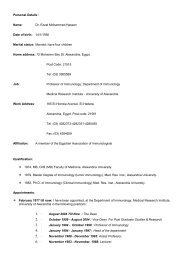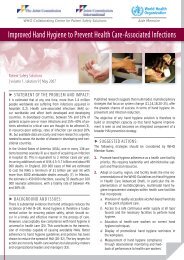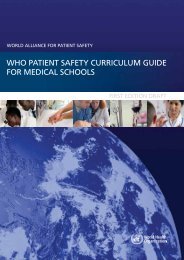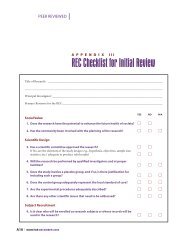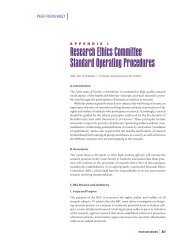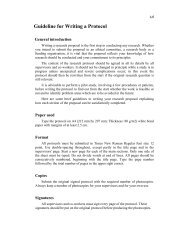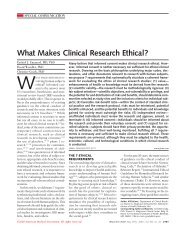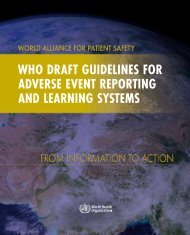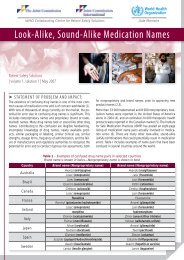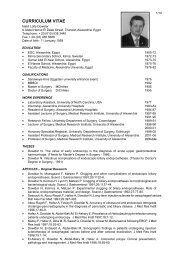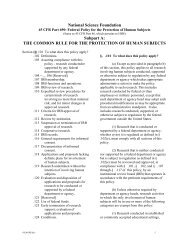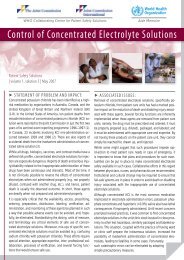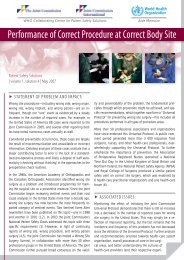Hand hygiene.pdf
Hand hygiene.pdf
Hand hygiene.pdf
You also want an ePaper? Increase the reach of your titles
YUMPU automatically turns print PDFs into web optimized ePapers that Google loves.
debate that resulted in increasing public awareness of the importance of hand <strong>hygiene</strong> in<br />
health-care settings.<br />
A recent national campaign in the USA, the “100 000 Lives” campaign 598 , relates to<br />
specific aspects of preventing HCAI by focusing on preventing central line and surgical site<br />
infections among a total of six quality improvement changes. Maintaining hand <strong>hygiene</strong> is<br />
one of the critical actions outlined in this campaign. The campaign has presently enrolled<br />
about 3000 hospitals and has mounted awareness-raising efforts (listed in Table V.5.1) to<br />
engage hospital participation.<br />
6. DOCUMENTING LESSONS LEARNT<br />
WHO, in The World Health Report 2002, outlines the importance of communicating<br />
information to the public 715 , as well as some important lessons that have been learnt on the<br />
role of dialogue between the public and government in communicating health risks. These<br />
lessons cover the most effective ways to handle and communicate with the public about<br />
important risks. In view of the serious implications of HCAI on the patient, his or her family,<br />
the health authority and the government, communicating information to the public is of<br />
essential importance. The main points can be summarized as follows 715 .<br />
• Governments and public agencies should make public a full account of known<br />
facts. Political credibility and public trust are rapidly lost if the public believes it<br />
has not been given full information on the risks that affect it.<br />
• Information to the public should be released by an independent and trusted<br />
professional agency. This should be done by recognized experts who are well<br />
qualified in the subject and who are seen to be fully trustworthy, politically independent<br />
and without conflicts of interest. For public health in many countries,<br />
this important function is often best performed by the chief medical officer.<br />
• An atmosphere of trust is needed between government officials, health experts,<br />
the general public and the media. This trust has to be developed and fostered.<br />
Condescending attitudes and the withholding of information can rapidly lead to<br />
public cynicism and accusations of a cover-up or a hidden scandal. Trust is easily<br />
lost but very difficult to regain.


